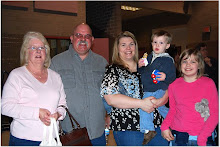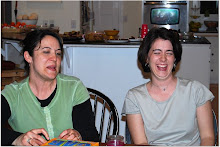“When your sin really does become ugly to you, when it produces pain in your heart and sickness in your stomach, you celebrate forgiveness, but you want something more. You want to be clean. You long to be once and for all purified from all sin whatsoever. You want your sin to be once for all washed away. You want to be free of every dark residue of sinful thought, desire, word or deed. Yes, you’ll love the fact that you can stand before God dirty and unafraid because of his comprehensive and freely given grace. You’ll love the fact that his forgiveness of you has been full and complete. But, you’ll grow tired of needing and seeking forgiveness. You’ll mourn the hold that sin has on you. You’ll be frustrated with the way that sin seems to infect everything you do. And you’ll begin to plead for what the blood of Jesus alone is able to do; wash away your sin. In this moment of need and helplessness, you’ll cry, ‘Purge me with hyssop Lord, dip the branch of your grace into the blood of your Son and cleanse me once and for all.”
- Paul David Tripp, Whiter than Snow, p. 66
"Come now, let us reason together, says the LORD: though your sins are like scarlet they shall be as white as snow; though they are red like crimson, they shall become like wool.”
- Isaiah 1:18
- Paul David Tripp, Whiter than Snow, p. 66
"Come now, let us reason together, says the LORD: though your sins are like scarlet they shall be as white as snow; though they are red like crimson, they shall become like wool.”
- Isaiah 1:18
What can wash away my sin?
Nothing but the blood of Jesus;
What can make me whole again?
Nothing but the blood of Jesus.
Oh! precious is the flow
That makes me white as snow;
No other fount I know,
Nothing but the blood of Jesus.
For my pardon, this I see,
Nothing but the blood of Jesus;
For my cleansing this my plea,
Nothing but the blood of Jesus.
Nothing can for sin atone,
Nothing but the blood of Jesus;
Naught of good that I have done,
Nothing but the blood of Jesus.
This is all my hope and peace,
Nothing but the blood of Jesus;
This is all my righteousness,
Nothing but the blood of Jesus.
Now by this I’ll overcome—
Nothing but the blood of Jesus,
Now by this I’ll reach my home—
Nothing but the blood of Jesus.
Glory! Glory! This I sing—
Nothing but the blood of Jesus,
All my praise for this I bring—
Nothing but the blood of Jesus.
-Robert Lowry, Nothing but the Blood, 1876
Dear Christ Our Redeemer Family and Friends,
As I looked outside this morning there were several inches of newly fallen snow. Everything was covered with brilliant whiteness. The dark dirt and grass, the imperfections, the tire tracks, dead leaves, and mole burrows that were obvious yesterday are now hidden from view. This is a stark contrast indeed. If you live long enough in the Christian life you become painfully aware that life often resembles the latter. Sin pock-marks our lives. Dirt and gouge and blemish become commonplace and we often become conscious of sin, more so, than grace. We ask, in desperation with the hymn writer, What can wash away my sin? We ask, Who can deliver us from this body of death? We ask, Will there be an end to sinning, and how soon will this deliverance be? Knowing our weakness God has given us reminders that cleansing from sin is already, continual, and not yet. Christ’s all-inclusive atonement has covered my past sins. Christ’s all-inclusive atonement is covering my present sins. Christ’s all-inclusive atonement will cover my future sins. I see the dirt and grime, God sees the Son’s complete, perfect and brilliant whiteness covering my incomprehensible shortfall. God has given us reminders in the Scriptures, God has given us reminders in the faithful proclamation of His Word, God has given us reminders in remembering past faithfulness and grace, God has given us reminders in the faithful encouragements of brothers and sisters, and God has given us reminders in the Lord’s Table as a declaration of His covenantal faithfulness. What shall wash away my sin? Yesterday, today and tomorrow, nothing but the blood of Jesus.
Remembering God’s faithfulness to wash away my sin,
Pastor Dan




























